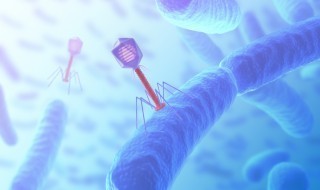 A tiny virus cultivated from Jerusalem’s sewage could help prevent root canal infections and ‘turn the tables’ on harmful bacteria, according to scientists.
A tiny virus cultivated from Jerusalem’s sewage could help prevent root canal infections and ‘turn the tables’ on harmful bacteria, according to scientists.
Bacteriophages (or ‘phages’) are viruses that infect bacteria and undertake a major role in maintaining the natural balance in their predator-prey relationship with bacteria.
Phage therapy could target Enterococcus faecalis biolfilm, often recovered from persistent infections associated with root canal treatments.
The researchers isolated an anti-E. faecalis phage from sewage effluents retrieved from a Jerusalem sewage treatment facility. The phage, named EFDG1, is able to infect the V583 strain of E. faecalis, which is resistant to vancomycin, the most effective anti-E faecalis antibiotic.
EFDG1’s efficacy was evaluated against E. faecalis cells in liquid culture and biofilm form.
A news story on the study said: ‘In both cases EFDG1 almost entirely eradicated the bacterial cultures. EFDG1 was found to be highly efficient against various E. faecalis and E. faecium isolates, regardless of their antibiotic resistance profile.
‘Moreover, the researchers showed that EFDG1 was highly effective in root canal infection, both in vitro and ex vivo in tissue samples. These findings suggest that phage therapy using EFDG1 might be an effective way to prevent E. faecalis infection following root canal procedures.’
Researchers also tested the safety of EFDG1 in fighting E. faecalis infections in humans. They found that the EFDG1 gerome does not contain harmful genes.
The researchers showed that EFDG1 was highly effective in root canal infection
Dr Ronen Hazan, lead researcher, commented: ‘The idea of using phages as anti-bacterial drugs is not new. Phage therapy was first proposed at the start of the 20th century, but then abandoned for various reasons, including the striking success of chemical antibiotics.
‘Now we stand on the verge of a new era with the limitations of synthetic antibiotics and the emergence of antibiotic-resistant strains of bacteria. Thus it is the right time to look again into what Mother Nature offers in the battle against bacteria.
‘As this research shows, bacteriophages may prove an effective tool in the development of much-needed new antimicrobial drugs.’
The research was carried out by scientists at the Hebrew University of Jerusalem and will appear in the April 2015 edition of Applied and Environmental Microbiology Journal.


